“‘She can’t…’ says the German soldier before breathing his last in a gurgling whisper. Before the meaning of this settles in, the screen grows brighter, in flickers, and the pilot looks back over his shoulder to see — in a point-of-view shot — a fire in the distance. He takes off running back to the farm, and within a few seconds it becomes clear that all is lost. By the time he arrives the farmhouse is engulfed in flames and the pilot falls to his knees and slumps forward. Then something very strange happens: the film switches to color again, but not because it’s a dream or flashback. Bathed in the yellow light of the fire, the pilot remains hunched forward in sorrow and despair as a shadow — the shadow of a human being — emerges from frame right.
“It’s the girl, in color, wearing a bright red beret. For the first time you can see that her eyes are blue. She kneels down beside the pilot and puts her hand beneath his chin and gently lifts his face toward hers. By this time the color has become almost psychedelically saturated, with both the girl and the pilot bathed in the hellish red light and black leaping shadows from the fire. The camera slowly pans down, revealing her clenched fist, which she slowly opens, palm up. In her hand she holds a small silver swastika, which gleams in the light. It seems to move imprecisely in the palm of her hand, as if animated. As the film switches again back to black and white, the familiar Hollywood music begins, signaling the end. The camera slowly pans up to the pilot’s face, which wears an expression of agony or ecstasy. After holding there for a moment, the camera continues panning up to the sky, revealing the moon, partially obscured by the black smoke from the smoldering farmhouse.
“At the time, I thought the ending was clear: the girl had torn the swastika from the uniform of the German soldier she had shot in the woods. She was a double agent, working for the Resistance, and murdered the German before he had a chance to sneak into the farmhouse to murder the pilot. But later, as I thought more about the film (which I only watched that once) I wondered if the swastika might have been the girl’s confession, an affirmation of what the pilot had suspected: that she was a Nazi and worse yet, a Nazi out of choice, not coercion. There was also the fact of the burning farmhouse, which seemed to me symbolic of the irrational terror of total war. But back then we found symbols in everything. The truth is the ending of the film was too terrible, too truthful, to ever really talk about, involving a technique that used multiple split screens, a technique I’d never seen before that literally split the screen into not two but four or five panels of action, each one divided by a vertical red line.”
*
My notes say Laing’s description of these two films (although description isn’t the right word) lasted about three hours (it can’t have been that long) and that I left the motel for lunch and returned a while later, having agreed with Laing that the only business we should conduct together in the motel room was “movie business.” When I return he has straightened the room up a bit, shaved, and the scarf isn’t to be seen.
“ Hutton ,” Laing says, “was the name of it. A short film, but suggestive of something much longer, almost historical in length, epic, with all the darkness that trails history, catching up with it, overtaking it, devouring it.
“As I remember it, Hutton waits in the car. These are his instructions. To wait.”
As Laing recalls the movie he sometimes squints, as if bringing it, or parts of it, the parts of it he wants to remember, into sharper focus.
“It is late in the afternoon, now. He has been there since 10 a.m., in his gray suit provided by the Messiah Detective Agency. Out the passenger side window is a city park. Families come and go. Out the driver side window is an old red-brick apartment building, with beautiful leaded windows and black iron work around the steps. Out the front windshield the street divides into a boulevard about 50 yards ahead of the parked car.
“The car windows are open. A fluke warm day in late October, the movie suggests, though I can’t remember how. Maya Deren’s granddaughter, Rachel or Raquel, or Aimee, gave it to me, the film, in the old stale cafeteria at the land-grant university in Pennsylvania, where we had agreed to meet through a series of letters (letters that served as long negotiations) and then through many short phone calls. When I say gave I mean loaned , though it amounted to the same thing in the end. She wore her black hair in sharply cut bangs, I remember, that was the style during those long years before the Towers fell. I could see the face of her grandmother behind or inside her own face, and her gestures seemed to imitate Maya’s swift and elegant movement in Meshes of the Afternoon . And with her, Aimee — that was her name, not Rachel or Raquel — brought several pages of her grandmother’s notes for the film, notes suggesting that it was not nearly complete, and that its ending would involve an apocalypse the likes of which had never been rendered on screen before. Aimee turned out to be a real chatterbox, which surprised me, except when it came to the topic of Maya’s notes for the calamitous ending, which she talked about in hushed tones as if not to arouse the curiosity of some invisible butcher towering just behind her there in the cafeteria, in a sort of transparent region of space that loomed behind her and that I could almost make out. And she wouldn’t allow me to examine her grandmother’s notes in front of her, forbidding me to so much as look at them in her presence. The cafeteria food was dull, which gave us a chance to laugh together at something, some shared experience, and it was then that I finally relaxed and flirted a little bit with Aimee over our dry mashed potatoes and slightly crusty orange Jell-O. In fact, it was Aimee who pointed to the mashed potatoes with her Spork and said, as if naming it for the first and last time, Mashes of the Afternoon .
“We spent the day like that, walking around campus, her all the while with the 16 mm film in her grungy satchel, and she would say things to strangers like I haven’t slept with your son , or Don’t worry, it will be over before you know it . She finally handed the film over, in one of those beautiful and alien metal circular canisters that can only be opened carefully and in a balanced sort of way by placing your fingers on opposite sides of the top lid and gently lifting. It had a red sticker on it, I remember, in the shape of a jagged cone that seemed something like an emblem of death, an emblem painted on with nail polish and, I could swear, warm to the touch. This was up in the storage area part of my library office where I had set up two 16 mm projectors and an AV cart with a VCR player, and I remember that it was hard to breathe for a few moments with Aimee Deren sitting there cross-legged on the floor next to me as I opened the canister and unspooled the film leader, holding it up to the light like it was secret microfiche depicting the code names for all the torture centers. I had difficulty breathing not because of Aimee or the closeness of her bare knee but rather because I felt that the apocalyptic ending that Aimee had told me about might actually be lying in wait there in the film itself and that’s why I asked Aimee, So have you seen this before? to which she replied, as I knew she would, Not all of it . For a moment it struck me that we were alone together — really alone — and that we could have done anything with each other had we wanted to. So you don’t know if the world ends or not? I asked, half-teasing, but her face suddenly had the look of someone stricken, stricken with a terrible thought in the shape or form of a shadow.”
Читать дальше
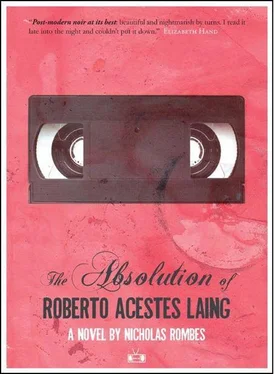
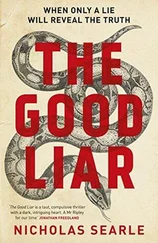
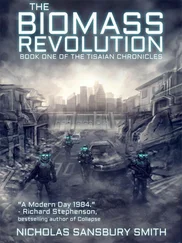
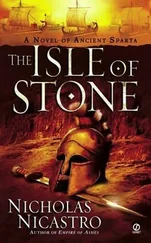


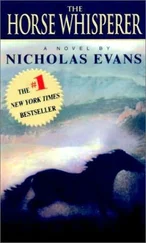
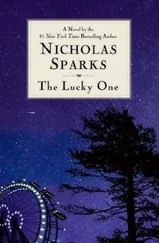

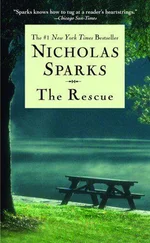


![Nicholas Timmins - The Five Giants [New Edition] - A Biography of the Welfare State](/books/701739/nicholas-timmins-the-five-giants-new-edition-a-thumb.webp)